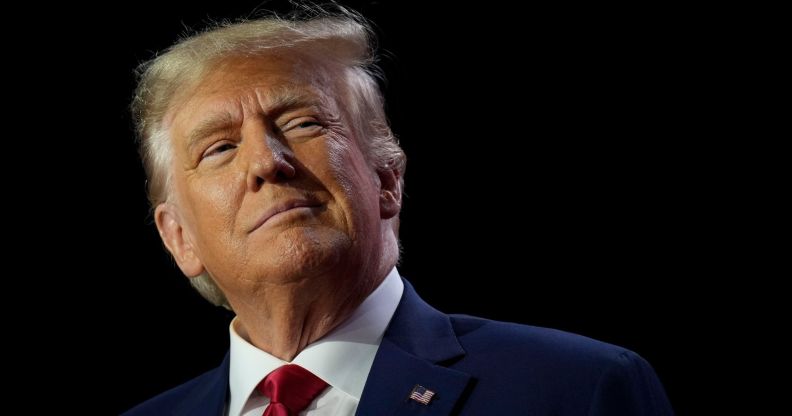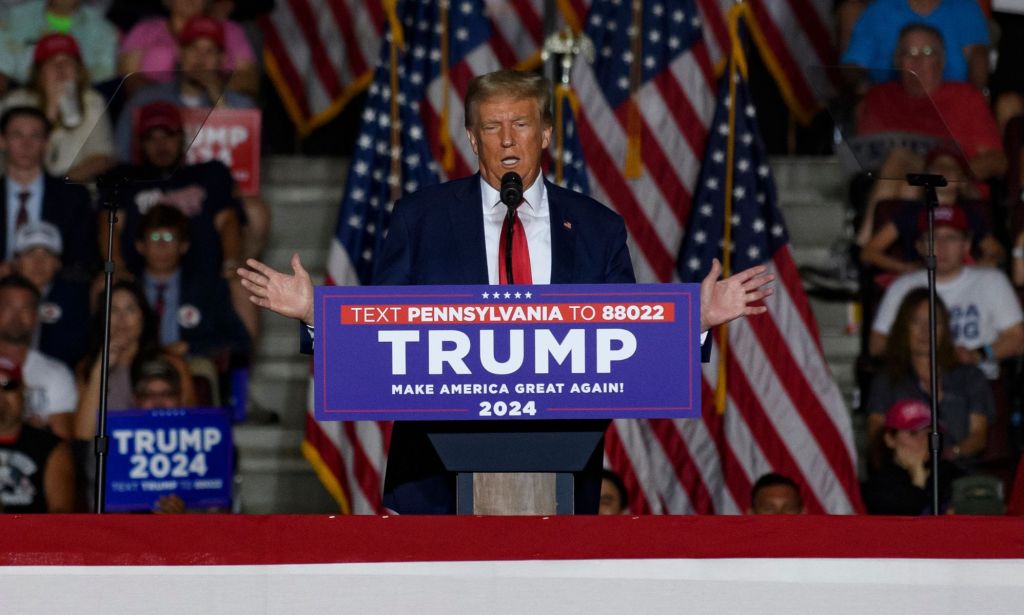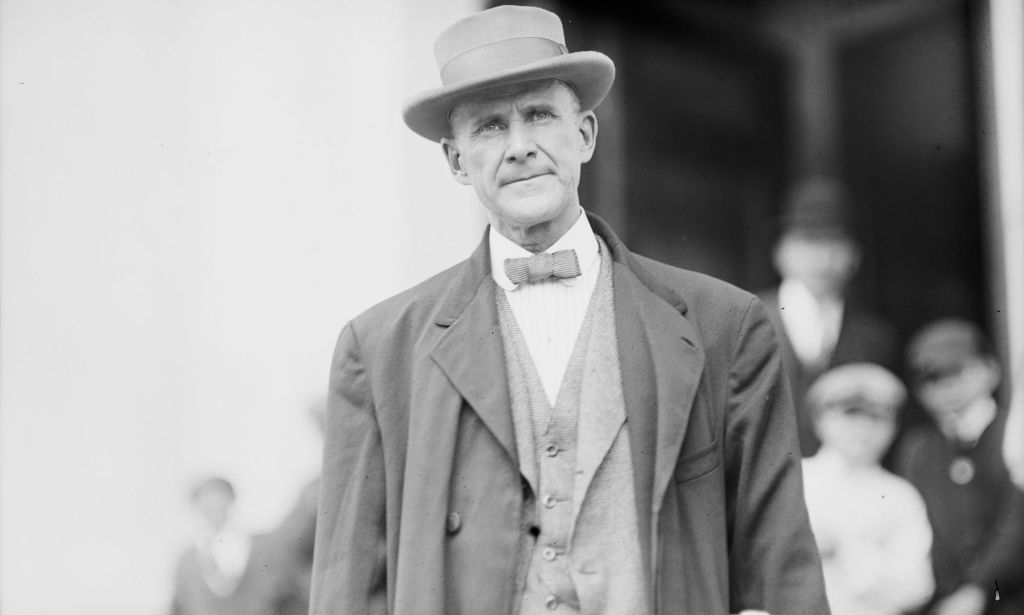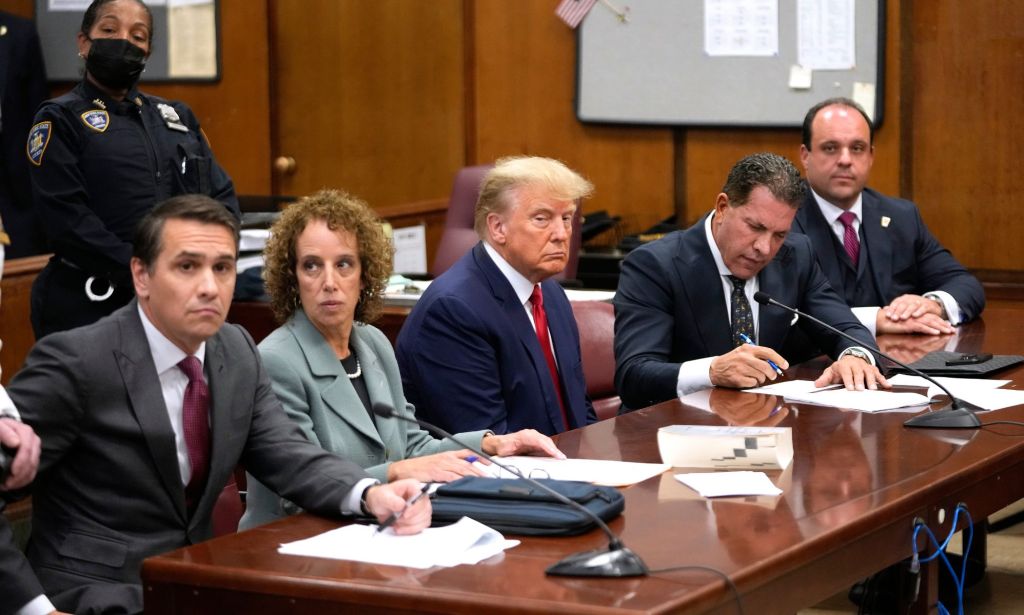Can Donald Trump still become president if he’s convicted of a crime?

Donald Trump is facing dozens of charges as he attempts to run for president. (Getty)
The rising number of legal cases against Donald Trump has raised questions about his latest run to be president – and the most obvious one is: could he return to the White House if convicted?
On Tuesday (1 August), the former US president was indicted on four counts related to efforts to overturn the 2020 election result. He is charged with conspiracy to defraud the US, conspiracy to obstruct a congressional proceeding (the certification of the Electoral College vote), obstruction of and attempt to obstruct a congressional proceeding, and conspiracy to deprive people of a civil right (the right to have their votes counted).
The four charges carry sentences ranging from five to 20 years in prison. Trump has pleaded not guilty to all of them.
It’s the latest in a series of indictments against Trump, who is facing dozens of charges across three cases. The Republican has denied all wrongdoing in each of the investigations. He has also vowed to keep his campaign going despite the legal issues.
But his situation has raised questions over whether the legal proceedings will hinder that campaign, hurt him in the polls, or if he can even get into the Oval Office again if convicted on any of the felony counts.
Can Donald Trump run for president if convicted?
While Trump is the first US president to face criminal charges, his legal situation doesn’t actually prevent him from trying to get a second term in the White House.
The US Constitution has few eligibility requirements for presidents. A presidential candidate must be at least 35 years old, a “natural-born” citizen and have been resident in the US for at least 14 years.
Some states prohibit felons from running for state or local positions, but these laws don’t apply to federal offices.
So, the indictments don’t disqualify Trump from running for president in 2024 or from serving if elected. Nor would any convictions.
Trump himself has stated that a conviction and sentence would not stop him from running for president in 2024.
Asked by conservative radio host John Fredericks last month whether a conviction and sentence would put the brakes on his Oval Office bid, Trump replied: “No, not at all. There’s nothing in the Constitution to say that it could, and not at all. And even the radical left crazies are saying, no, that wouldn’t stop [it].”
Would convictions hurt his campaign?
Trump is still well ahead in the polls in the list of Republican presidential candidates, but it would be logistically difficult for him to run a whole campaign from behind bars.
His campaign staff would have to handle activities, fundraising and other things in his absence.

Kate Shaw, a legal analyst for ABC News and professor at Cardozo School of Law, said that being incarcerated would “presumably make campaigning difficult if not impossible”. But it’s more a “practical problem, [than] a legal one”, she added.
James Sampler, a professor of constitutional at Hofstra University, believes the “most fundamental obstacle” Trump faces is “proving to the voters that [he] deserves the office” over other candidates.
It’s not the first time candidates with criminal convictions have run for the presidency
Eugene V. Debs ran as a Socialist presidential candidate in 1920 while in prison, having been convicted of violating the Sedition Act after a speech in which he denounced American’s role in the First World War.
During that election, he won almost a million votes – although that did not lead to success in the electoral college. He’d already served an earlier jail term for defying a court injunction regarding strike action.

More recently, Lyndon LaRouche, a fringe political figure who espoused conspiracy theories, ran for president eight times between 1976 and 2004 – including once from prison after he was convicted of mail fraud. He was sentenced to 15 years in federal prison but released on parole after five.
In the wake of the 6 January riots at the US Capitol, some House Democrats introduced a bill seeking to ban Trump from holding office under the 14th Amendment, which bars anyone who has held government office and who “engaged in insurrection or rebellion” from being able to hold federal office again.
But the bill never made it out of the House before Republicans regained control in January.
This is the third separate criminal indictment Donald Trump is facing
In March, a New York grand jury indicted Trump over a hush money scheme involving adult film star Stormy Daniels, which was organised before the 2016 election. He was charged with 34 counts. He has pleaded not guilty to any wrongdoing.
The trial is set to take place some time in 2024, when his campaign could be in full swing.

Trump also faces 40 charges from another criminal indictment, following an investigation into confidential documents found at Mar-a-Lago, his Florida residence, after leaving office in 2020.
This charges include wilful retention of defence information, obstruction and 31 counts under the Espionage Act of “wilful retention” of classified records.
Again, he has pleaded not guilty to all the charges.
How did this story make you feel?

